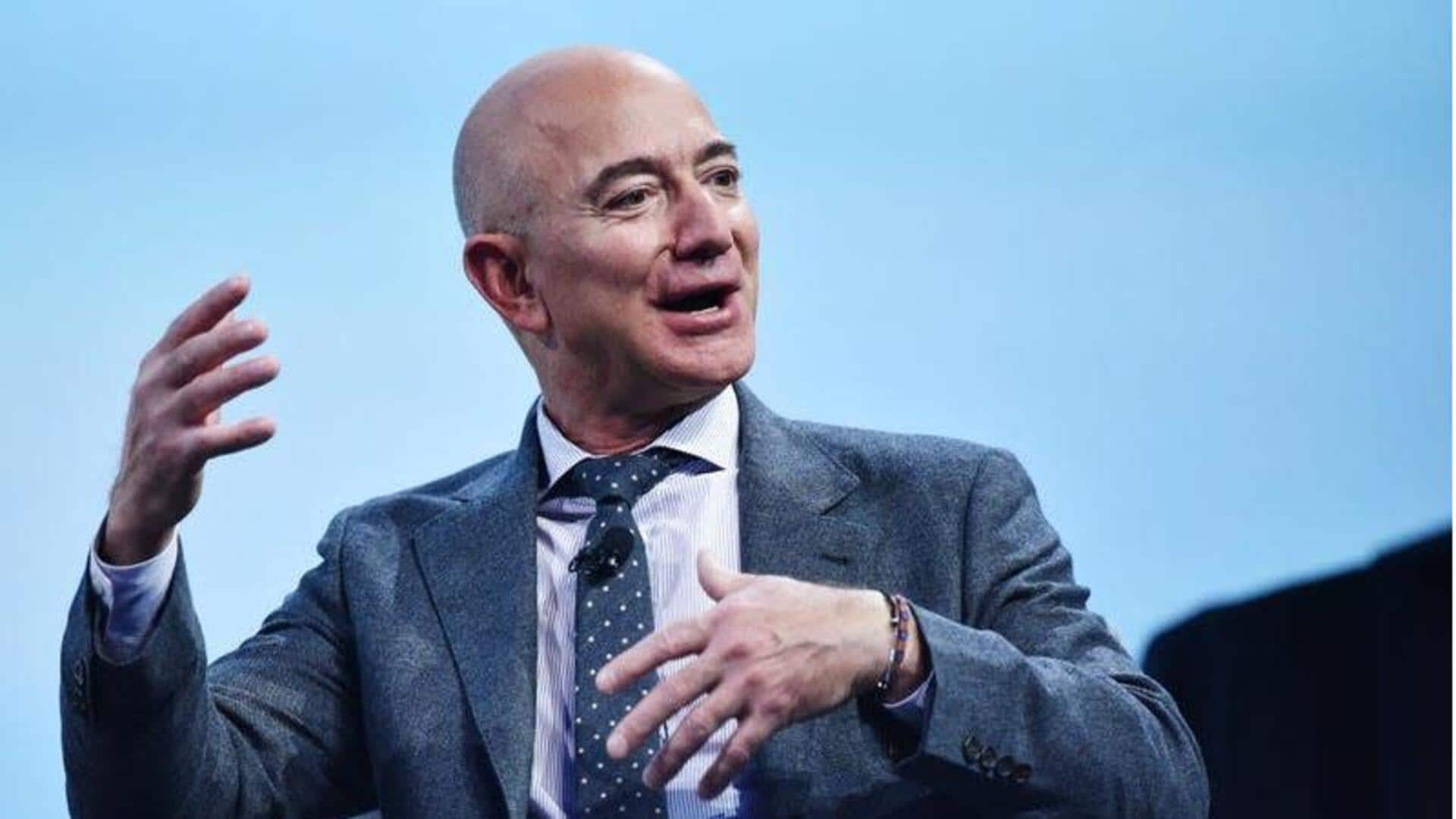
Bezos backing AI chipmaker that wants to take on NVIDIA
What's the story
Amazon founder Jeff Bezos has invested in Tenstorrent, an artificial intelligence (AI) chip start-up.
Bezos's investment came as part of a $700 million funding round led by South Korea's AFW Partners and Samsung Securities. The funding has increased Tenstorrent's market value to around $2.6 billion.
The company hopes to break NVIDIA's dominance in the AI space with its innovative chip technology.
Expansion plans
Growth strategy and market competition
The money raised will be used to grow Tenstorrent's engineering team, strengthen its global supply chain, and create large AI training servers. This approach is aimed at demonstrating the company's cutting-edge technology.
Tenstorrent is one of the many new players hoping to grab a piece of the AI market, which is currently dominated by NVIDIA.
The start-up is also based in Santa Clara, California, like NVIDIA.
Technological strategy
Unique approach to AI chip development
Unlike NVIDIA, which employs high-bandwidth memory (HBM) in its products, Tenstorrent is working on solutions for more affordable AI development.
These solutions rely on open-source and standard technology, steering clear of expensive components such as HBM.
"You can't beat NVIDIA if you use HBM, because NVIDIA buys the most HBM and has a cost advantage," said Jim Keller, founder of Tenstorrent.
Open standards
Tenstorrent advocates for open standard logic processors
Tenstorrent is also pushing an alternative kind of logic processor based on an open standard called RISC-V.
The move takes on Arm Holdings Plc and is backed by Keller, who has previously worked on silicon design at Apple, Tesla, and AMD.
"Open source helps you build a bigger platform. It attracts engineers," Keller said, highlighting the advantages of their strategy.
Future
Tenstorrent's future plans and production partnerships
Despite bagging contracts worth nearly $150 million, Tenstorrent still has a long way to go to catch up with NVIDIA's mammoth data center revenue.
The company intends to release a new AI processor every two years.
Its first chips were produced by GlobalFoundries Inc, while future versions will be produced by Taiwan Semiconductor Manufacturing Company and Samsung Electronics.